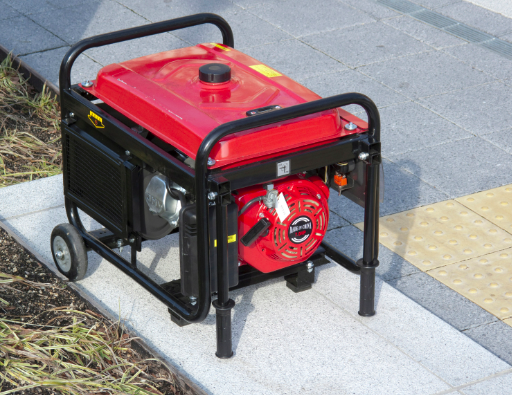Last Updated on November 25, 2022 by mdmtool
Generators and inverters are two types of devices that are used to produce electrical energy. While a generator converts mechanical energy into electrical energy, an inverter converts electrical energy into mechanical energy.
What Is a Generator?

A generator is a machine that converts mechanical energy into electrical energy. This conversion is based on the principle of electromagnetic induction. The generator consists of a rotating part (rotor) and a stationary part (stator). The rotating part contains a coil that spins in a magnetic field. The spinning motion of the coil around the magnets produces electricity.
What Is Inverter?

The inverter is a device that converts direct current (DC) into alternating current (AC). It is also known as a power inverter. It is used to supply AC power from DC sources such as batteries or solar panels.
Difference Between Generator And Inverter

Below are the key differences between generator and inverter:
- Size: The key difference between a generator and an inverter is that a generator is typically larger and heavier than an inverter. This is because a generator needs to be able to convert a large amount of mechanical energy into electrical energy. In contrast, an inverter only needs to be able to convert a small amount of electrical energy into mechanical energy.
- Output ratings: The generator and inverter have different power output ratings. A generator typically has a higher power output rating than an inverter because it needs to produce more electrical energy.
- Basics: A generator is a machine that converts mechanical energy into electrical energy, while an inverter does the opposite by converting electrical energy into mechanical energy.
- Power sources: A generator can be powered by various sources, such as gasoline, diesel, natural gas, or propane. On the other hand, an inverter is typically powered by batteries or solar panels.
- Capacity: A generator is typically larger and heavier than an inverter because it needs to be able to convert a large amount of mechanical energy into electrical energy.
- Output ratings: The generator and inverter have different power output ratings, with a generator typically having a higher power output rating.
- The Maintenance: Generators require more maintenance than inverters. This is because a generator has many moving parts that can wear out over time. On the other hand, inverters have very few moving parts and thus require less maintenance. Generators are typically larger and heavier than inverters. Generators also require more maintenance than inverters.
- Cost: Generators are typically more expensive than inverters. This is because a generator is a more complex machine than an inverter. Inverters supply AC power from DC sources such as batteries or solar panels.
- Use: Generators are used to produce electricity, while inverters are used to convert direct current into alternating current. Generators are typically used in power plants, while inverters are used in homes and businesses.
- Noise: Generators are typically louder than inverters. This is because a generator has many moving parts that can create noise. Inverters, on the other hand, have very few moving parts and thus create less noise.
- Efficiency: Generators are typically less efficient than inverters.
- Quality: Generators are typical of higher quality than inverters.

Pros And Cons Of Inverter
Pros:
- Inverters are more energy-efficient than generators since they only produce the power needed at a given moment.
- Inverters are quieter than generators since they adjust their speed according to the power needed.
- Inverters are less polluting.
Cons:
- Expensive than generators.
- Require more maintenance than generators.
- Inverters can be damaged by power surges, while generators are unaffected by power surges.
Pros And Cons Of Generators
Pros:
- Generators are more affordable.
- Generators require less maintenance.
- Generators are not affected by power surges.
Cons:
- Generators are less energy-efficient.
- Generators are louder than inverters.
- Generators produce more emissions than inverters .
Conclusion
The main difference between a generator and an inverter is that a generator creates AC power by spinning a magnet inside wire coils. In contrast, an inverter changes DC power into AC power. Generators are typically used to power large appliances or devices, while inverters shift the voltage of smaller devices.





